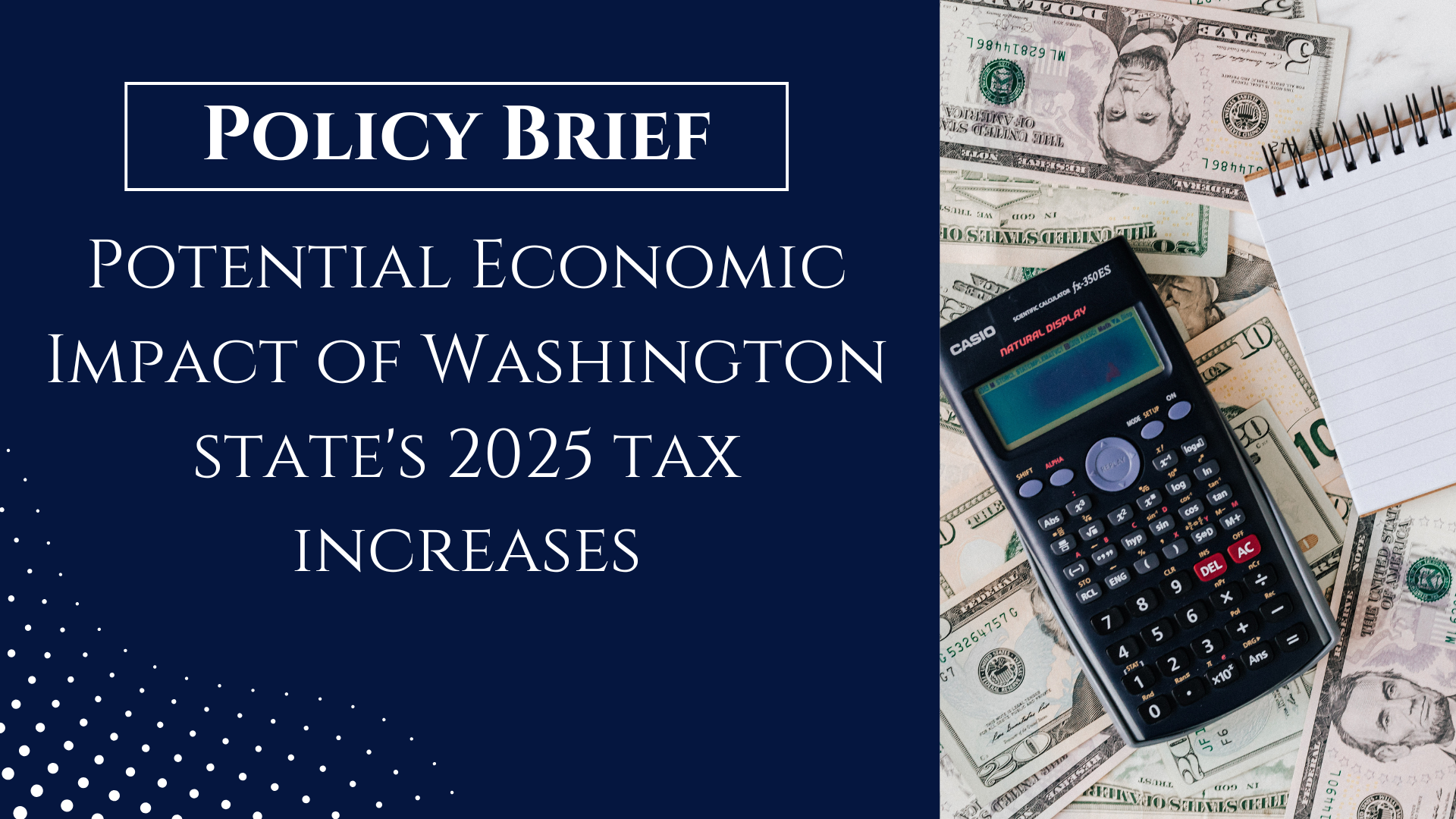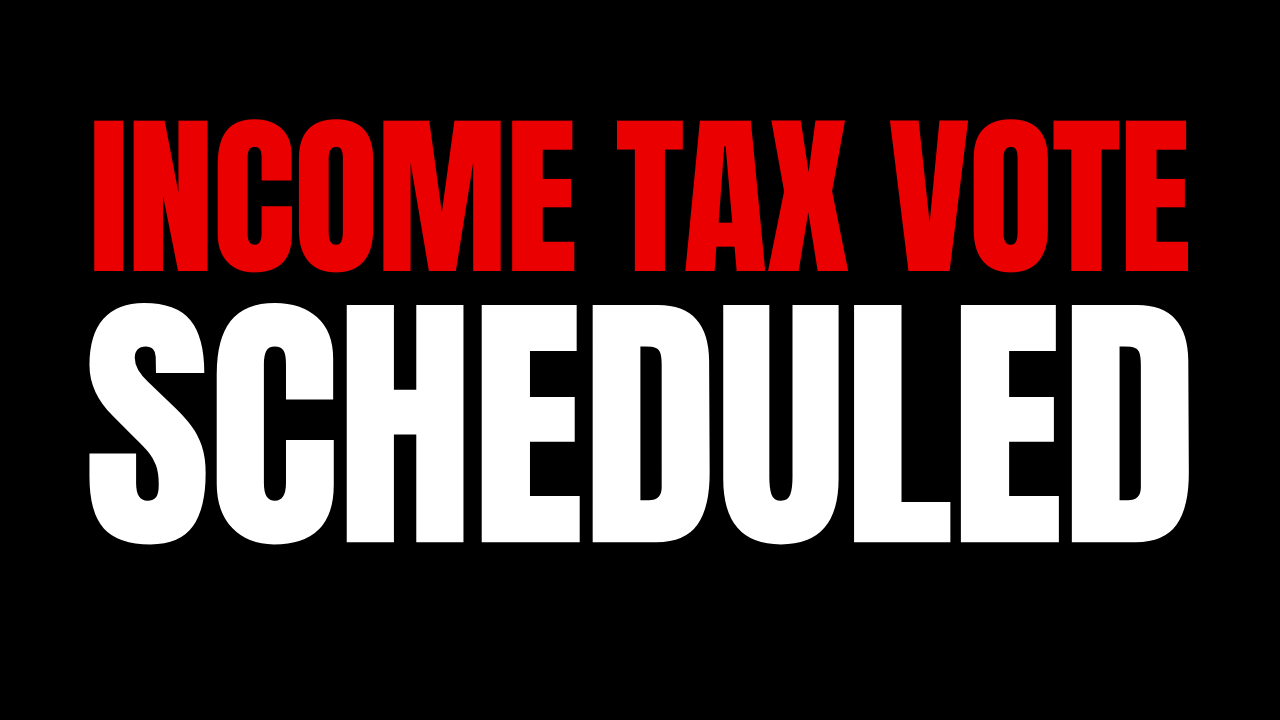When Governor Inslee decided to not propose a capital gains tax for his 2018 Supplemental, we were hopeful that policy makers had taken to heart what Judge Ruhl said when striking down Seattle’s income tax saying you can’t call an income tax an “excise tax” to skirt legal restrictions. It looks like that hope was misplaced. Some lawmakers have again proposed a capital gains income tax with the introduction of HB 2967. As with prior proposals they again try to call this a capital gains “excise tax.”
There is no debate, however, that capital gains are income. The IRS Form 1040, under the section titled “Income,” includes line 13 which requires capital gains income to be reported for purposes of determining total income. The IRS instruction form for the 1040 under “List of Tax Topics – Types of Income” includes “Capital gains.”
Every state revenue department in the country calls capitals gains income. No state has an “excise tax” on capital gains. Every state with a capital gains tax does so via an income tax. None of the states without an income tax has a tax on capital gains. States without income taxes described their treatment of capital gains income like Florida did:
"There is currently no Florida income tax for individuals and, therefore, no Florida capital gains tax for individuals."
The best response differentiating between what an excise tax is versus income tax was Illinois:
"Capital gains are included in federal taxable income, against which Illinois income tax is determined. Illinois does not impose an excise tax on any form of income. Excise taxes are imposed on items of consumption, such as the liquor tax, cigarette tax and utilities taxes."
It appears even some income tax proponents agree a capital gains tax is an income tax. Among the thousands of public records I’ve reviewed concerning Seattle’s income tax effort was this comment from the Economic Opportunity Institute:
“The tax on capital gains is being portrayed (wrongly, I think) as NOT a tax on income, but as an excise tax.” (April 24, 2017 email from John Burbank)
The text of HB 2967 also makes it clear a tax on income is being proposed (emphasis added):
- Section 108 (2): “A credit is allowed against the tax imposed in section 103 of this act equal to the amount of any legally imposed income or excise tax paid by the taxpayer to another taxing jurisdiction on capital gains derived from capital assets within the other taxing jurisdiction to the extent such capital gains are included in the taxpayer's Washington capital gains.”
- Section 109 (2): “In addition to the Washington return required to be filed under subsection (1) of this section, taxpayers owing tax under this chapter must file with the department on or before the date the federal return is required to be filed a copy of the federal income tax return along with all schedules and supporting documentation.”
- Section 110 (1): “If the federal income tax liabilities of both spouses are determined on a joint federal return for the taxable year, they must file a joint return under this chapter.”
Why does it matter if a capital gains tax is an income tax? To enact a graduated income tax, such as a capital gains tax, would require a constitutional amendment. As noted by the Washington State Supreme Court (1951): "It is no longer subject to question in this court that income is property." The state constitution says that property must be taxed uniformly and at no more than 1% of its value.
Legality aside, state officials continue to boast about the lack of a capital gains tax being a competitive advantage for Washington. From the recent pitch to Amazon to keep HQ2 in the Puget Sound:
"Our advantages include . . . No personal income tax, no tax on interest, dividends or capital gains, and low corporate taxes."
If lawmakers want a capital gains tax they need to be honest about what it is and not play games. The only way to impose a capital gains tax in Washington is with a constitutional amendment. Otherwise lawmakers are simply setting the state up for costly litigation (as is occurring in Seattle) as taxpayers fight to force compliance with the state constitution’s protection of property.
There is also the little fact that a January statewide poll of 600 Washington voters revealed strong opposition to an income tax on capital gains. 62% of respondents indicated they would oppose a capital gains tax with 49% of those respondents “definitely opposed.”
Additional Information
State Revenue Departments Describe Capital Gains Income Taxes
New poll shows strong opposition to income tax in any form
Tax Foundation: The Capital Gains Tax is Back in Washington—and it’s Still an Income Tax
Proposed capital gains tax is likely an unconstitutional income tax and would be an unreliable revenue source
Lawmakers receive capital gains tax lesson in Seattle income tax ruling
Governor’s budget wisely avoids capital gains income tax
Questions for House capital gains income tax hearing





